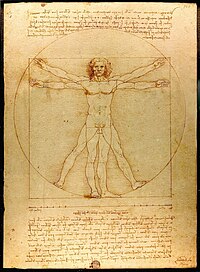m date comma fixes + gen fixes using Project:AWB |
m Adding category Category:Statements (religion) (using HotCat) |
||
| Line 49: | Line 49: | ||
[[Category:Secularism]] |
[[Category:Secularism]] |
||
[[Category:2002]] |
[[Category:2002]] |
||
[[Category:Statements (religion)]] |
|||
[[de:Amsterdam-Deklaration]] |
[[de:Amsterdam-Deklaration]] |
||
Revision as of 20:52, 5 August 2010
| Part of a series on |
| Humanism |
|---|
 |
| Philosophy portal |
The Amsterdam Declaration 2002 is a statement of the fundamental principles of modern Humanism passed unanimously by the General Assembly of the International Humanist and Ethical Union (IHEU) at the 50th anniversary World Humanist Congress in 2002. According to the IHEU, the declaration "is the official statement of World Humanism."
It is officially supported by all member organisations of the IHEU including:
- American Humanist Association
- British Humanist Association
- Humanist Canada
- Council of Australian Humanist Societies
- Council for Secular Humanism
- Gay and Lesbian Humanist Association
- Human-Etisk Forbund, the Norwegian Humanist Association
- Humanist Association of Ireland
- Indian Humanist Union
A complete list of signatories can be found on the IHEU page (see references).
This declaration makes exclusive use of capitalized Humanist and Humanism, which is consistent with IHEU's general practice and recommendations for promoting a unified Humanist identity. [1] To further promote Humanist identity, these words are also free of any adjectives, as recommended by prominent members of IHEU. [2] Such usage is not universal among IHEU member organizations, though most of them do observe these conventions.
Summary of Humanist principles
(see References for complete text)
The fundamentals of modern Humanism are as follows:
- Humanism is ethical.
- Humanism is rational.
- Humanism supports democracy and human rights.
- Humanism insists that personal liberty must be combined with social responsibility.
- Humanism is a response to the widespread demand for an alternative to dogmatic religion.
- Humanism values artistic creativity and imagination and recognises the transforming power of art.
- Humanism is a lifestance aiming at the maximum possible fulfilment through the cultivation of ethical and creative living.
The Amsterdam Declaration explicitly states that Humanism rejects dogma, and imposes no creed upon its adherents.
History
At the first World Humanist Congress in the Netherlands in 1952, the IHEU general assembly agreed a statement of the fundamental principles of modern Humanism - The Amsterdam Declaration.
At the 50th anniversary World Humanist Congress in 2002, the IHEU general assembly unanimously passed a resolution updating that declaration - "The Amsterdam Declaration 2002".
References
Amsterdam Declaration 2002 - the IHEU general assembly unanimous resolution
Notes
- ^ "Capitalization [of Humanism] is not mandatory... It is recommended usage and the normal usage within IHEU"—Jeremy Webbs, IHEU webmaster, from a response to a Wikipedia editor inquiry, dated 2 March 2006.
- ^ Humanism is Eight Letters, No More—endorsed by Harold John Blackham, Levi Fragell, Corliss Lamont, Harry Stopes-Roe and Rob Tielman.